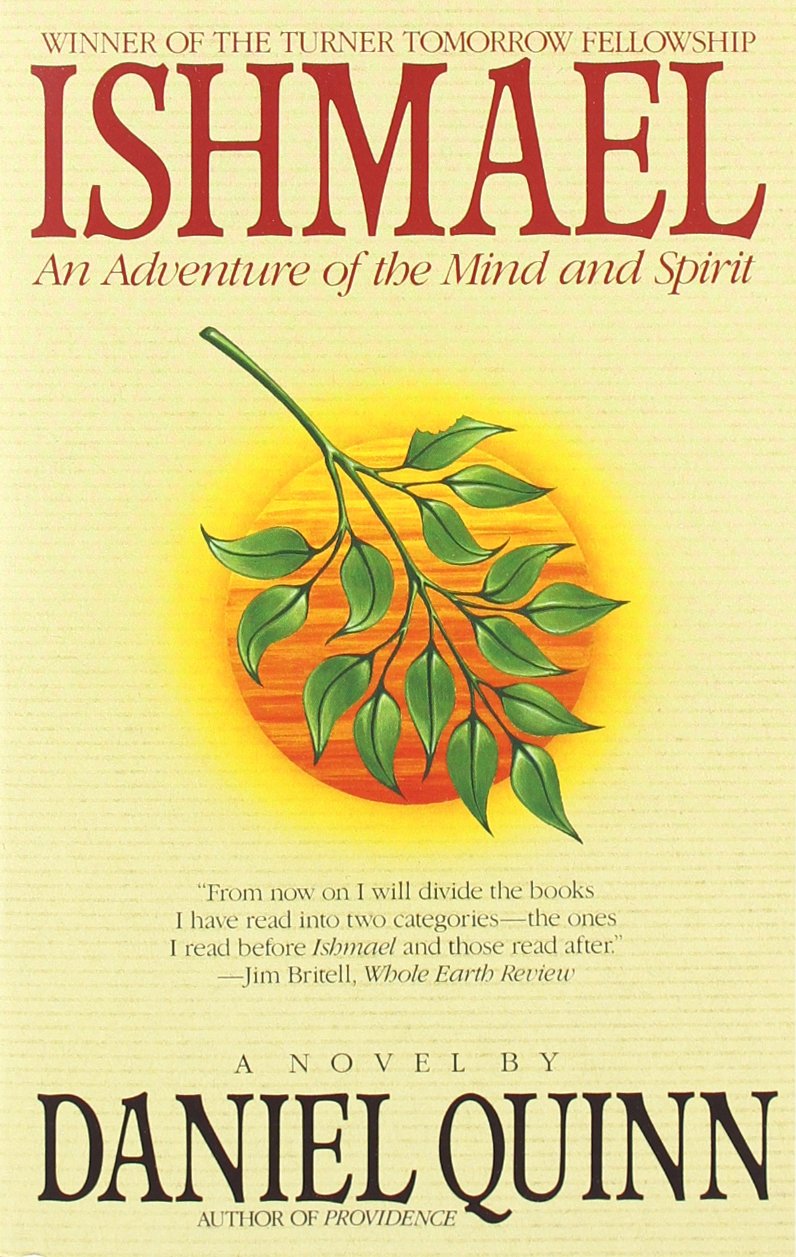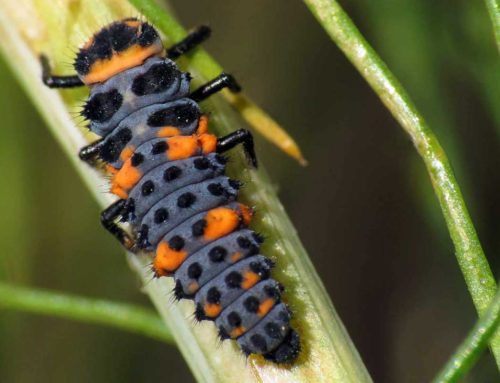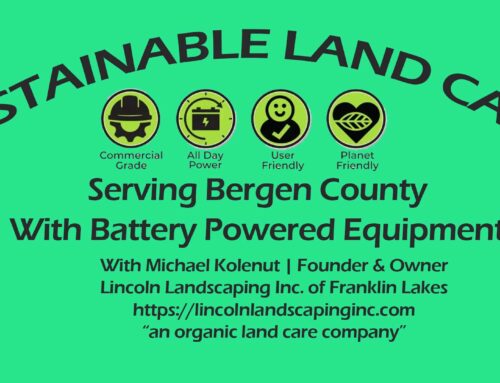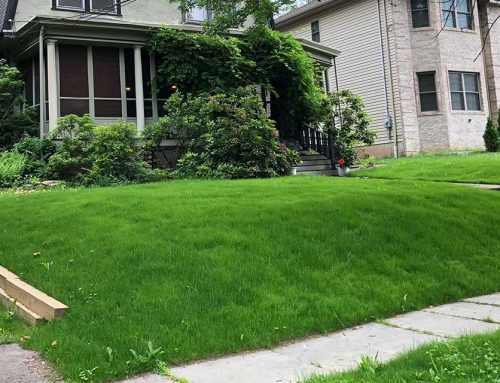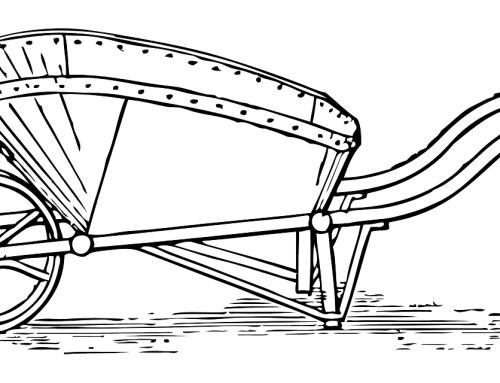from the library of Michael Kolenut
Suggested Reading – organic gardening and “green” living books
Winter is a great time for gardeners to catch up on their reading. There’s nothing as relaxing as laying back in your favorite recliner, having a cup of hot-chocolate for sipping on the table nearby, 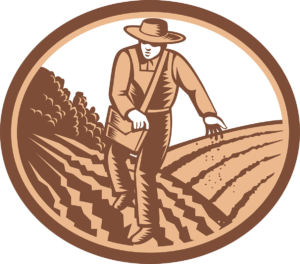 the dog lying at your feet in the warmth of your cozy den or office and reading an informative Organic Gardening Book.
the dog lying at your feet in the warmth of your cozy den or office and reading an informative Organic Gardening Book.
I’ve put together a selection of some of my all-time must READ gardening books for you to review and perhaps enjoy also. These books contain a wealth of information across the diverse spectrums of not only organic gardening but “green” organic living. Some are more technical in scope, some more whimsical and humorous with leprechauns and such, but all carry a theme and sense of purpose about them.
Many of the books below can be found at ACRES U.S.A. – a resource rich online library of organic living books
If you do not already have a list of reading, then here are a few suggestions for your winter respite.
Hands on Agronomy – Neal Kinsey
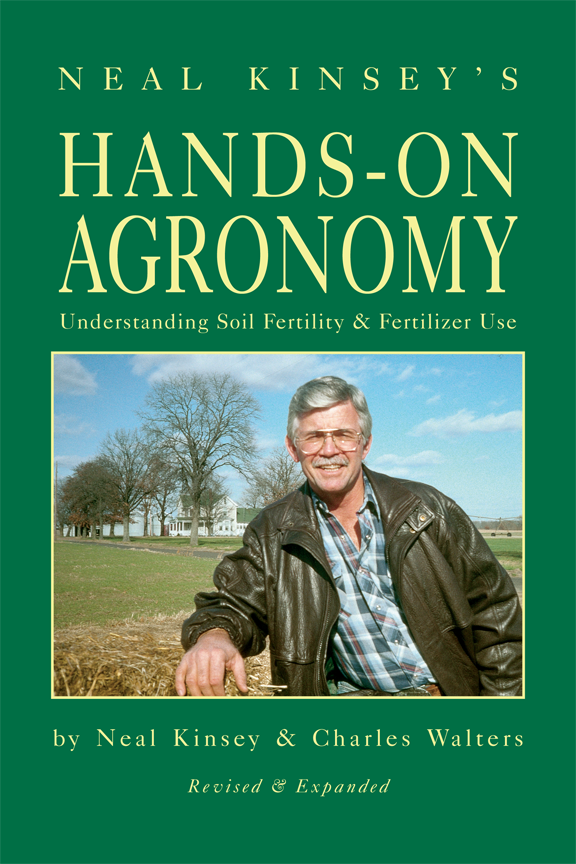 The soil is more than just a substrate that anchors crops in place. An ecologically balanced soil system is essential for maintaining healthy crops. Hands-On Agronomy is a comprehensive manual on effective soil fertility management providing many on-farm examples to illustrate the various principles and how to use them. The function of micronutrients, earthworms, soil drainage, tilth, soil structure, and organic matter is explained in thorough detail.
The soil is more than just a substrate that anchors crops in place. An ecologically balanced soil system is essential for maintaining healthy crops. Hands-On Agronomy is a comprehensive manual on effective soil fertility management providing many on-farm examples to illustrate the various principles and how to use them. The function of micronutrients, earthworms, soil drainage, tilth, soil structure, and organic matter is explained in thorough detail.
Kinsey demonstrates that working with the soil produces healthier crops with a higher yield. To that end, he provides an understanding of eco-agriculture as a viable enterprise that is both naturally and commercially sustainable. This work offers advice that is both highly valuable and applicable to the farmer of any level and promotes an ecological understanding of the farm from the ground up.
- Preview Hands on Agronomy
The Dying of the Trees
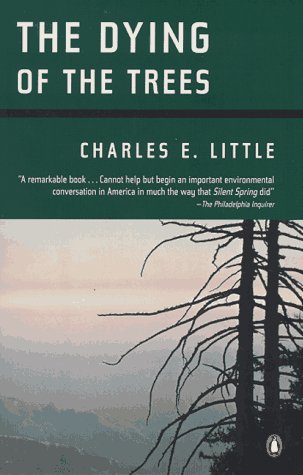 ” Let me say it straight out: The Dying of the Trees authored by Charles E. Little is the most important environmental book since Silent Spring. It is written with equal grace, with the same relentless dedication to truth, with the same sad, brave determination to look reality in the face and describe it for what it is. And what Little describes is an ecological catastrophe that is not imminent–it is happening right now, and if we do not begin to change the way we live on the earth very, very soon, there will be no reversing it.” –T. H. Watkins, editor of Wilderness magazine
” Let me say it straight out: The Dying of the Trees authored by Charles E. Little is the most important environmental book since Silent Spring. It is written with equal grace, with the same relentless dedication to truth, with the same sad, brave determination to look reality in the face and describe it for what it is. And what Little describes is an ecological catastrophe that is not imminent–it is happening right now, and if we do not begin to change the way we live on the earth very, very soon, there will be no reversing it.” –T. H. Watkins, editor of Wilderness magazine
More about The The Dying of the Trees
Raising with the Moon
Planting “by the signs” is an ancient tradition that is enjoying an unprecedented resurgence and is now explained in this exploration of the signs of the moon and how they work. Includes information on every aspect of gardening: preparing the soil, planting, fertilizing, and harvesting.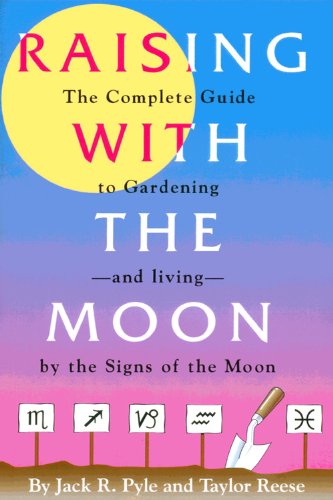
Pyle and Reese, avid homesteaders who live in the mountains of North Carolina, explain the logic behind gardening by the signs of the moon and show how it works. Clear and complete instructions are given for every aspect of gardening — soil preparation, cultivation, fertilization, planting, transplanting, pruning, weed and pest control, grafting and harvesting.
More about Raising with the Moon
The Lorax
by Dr. Seuss
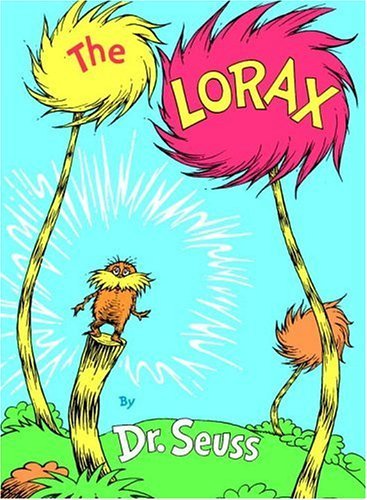 Long before “going green” was mainstream, Dr. Seuss’s Lorax spoke for the trees and warned of the dangers of disrespecting the environment. In this cautionary rhyming tale (printed on recycled paper) we learn of the Once-ler, who came across a valley of Truffula Trees and Brown Bar-ba-loots, and how his harvesting of the tufted trees changed the landscape forever. With the release of the blockbuster film version, the Lorax and his classic tale have educated a new generation of young readers not only about the importance of seeing the beauty in the world around us, but also about our responsibility to protect it.
Long before “going green” was mainstream, Dr. Seuss’s Lorax spoke for the trees and warned of the dangers of disrespecting the environment. In this cautionary rhyming tale (printed on recycled paper) we learn of the Once-ler, who came across a valley of Truffula Trees and Brown Bar-ba-loots, and how his harvesting of the tufted trees changed the landscape forever. With the release of the blockbuster film version, the Lorax and his classic tale have educated a new generation of young readers not only about the importance of seeing the beauty in the world around us, but also about our responsibility to protect it.
More about The Lorax by Dr.. Suess
Managing Healthy Sports Fields
A Guide to Using Organic Materials for Low-Maintenance and Chemical-Free Playing Fields
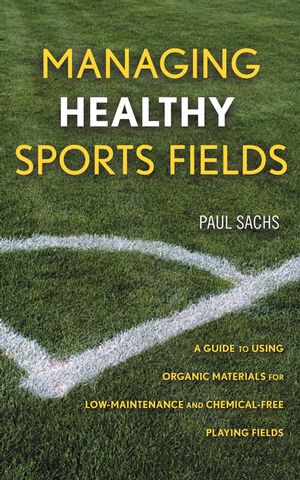 The huge chemical arsenal once available to turf managers for pest, weed and disease control has slowly but surely been restricted or regulated. As a result alternative methods have had to be sought. This text aims to liberate the modern turf manager from dependency on chemical treatments through suggestions you can adapt to specific field types, climatic zones, and desired appearance. Author Paul Sachs offers safety for people and animals, as well as longevity for the land, without sacrificing the quality of the turf itself.
The huge chemical arsenal once available to turf managers for pest, weed and disease control has slowly but surely been restricted or regulated. As a result alternative methods have had to be sought. This text aims to liberate the modern turf manager from dependency on chemical treatments through suggestions you can adapt to specific field types, climatic zones, and desired appearance. Author Paul Sachs offers safety for people and animals, as well as longevity for the land, without sacrificing the quality of the turf itself.
More about Managing Healthy Sports Fields
In the Absence of the Sacred
By Jerry Mander
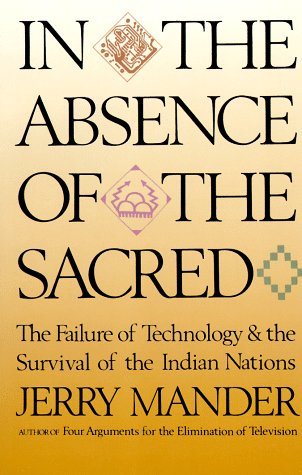 Mander goes beyond television (which he proclaimed as being dangerous to personal health and sanity in Four Arguments for the Elimination of Television) to critique our technological society as a whole, challenge its utopian promises, and track its devastating impact on native cultures worldwide.
Mander goes beyond television (which he proclaimed as being dangerous to personal health and sanity in Four Arguments for the Elimination of Television) to critique our technological society as a whole, challenge its utopian promises, and track its devastating impact on native cultures worldwide.
“Will interest all readers concerned about our environment and quality of life.” Excellent reading..
More about In the Absence of the Sacred
Ishmael
Daniel Quinn
Must have an earnest desire to
save the world. Apply in person.
It was just a three-line ad in the personals section, but it launched the adventure of a lifetime…
So begins Ishmael, an utterly unique and captivating novel that has earned a large and passionate following among readers and critics alike—one of the most beloved and bestselling novels of spiritual adventure ever published.
More about Ishmael
Mid-Course Correction
Toward a Sustainable Enterprise
Ray Anderson
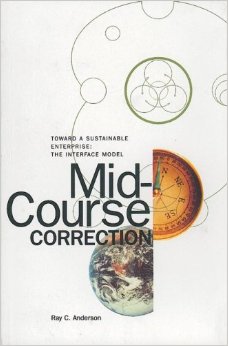 Of value to business people, environmentalists, and educators alike, Mid-Course Correction is a business book about the enviornment that’s written from a personal perspective. With passion and pride, Ray Anderson, Founder, Chairman and CEO of one of the world’s largest interior furnishings companies, recounts his awakening to the importance of environmental issues and outlines the steps his petroleum-dependent company, Atlanta-based Interface, Inc., is taking in its quest to become a sustainable enterprise — one that will never have to take another drop of oil from the Earth. Thought-provoking and thoughtful, Anderson’s story is told from the heart.
Of value to business people, environmentalists, and educators alike, Mid-Course Correction is a business book about the enviornment that’s written from a personal perspective. With passion and pride, Ray Anderson, Founder, Chairman and CEO of one of the world’s largest interior furnishings companies, recounts his awakening to the importance of environmental issues and outlines the steps his petroleum-dependent company, Atlanta-based Interface, Inc., is taking in its quest to become a sustainable enterprise — one that will never have to take another drop of oil from the Earth. Thought-provoking and thoughtful, Anderson’s story is told from the heart.
More about Mid-Course Correction
Growing Wild
Karen Blumer
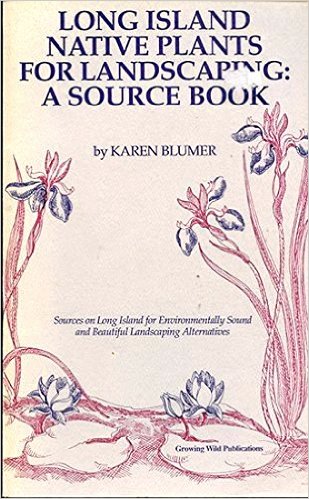 Excellent resources on Long Island for environmentally sound and beautiful landscaping alternatives by Karen Blumer. Landscaping with native perennials and plants and utilizing the environment as mother nature intended.
Excellent resources on Long Island for environmentally sound and beautiful landscaping alternatives by Karen Blumer. Landscaping with native perennials and plants and utilizing the environment as mother nature intended.
Live within nature – not with nature. Become a part of the environmental atmosphere and learn to contribute instead of waste. Highly recommended….
More about Growing Wild
Deadly Feast
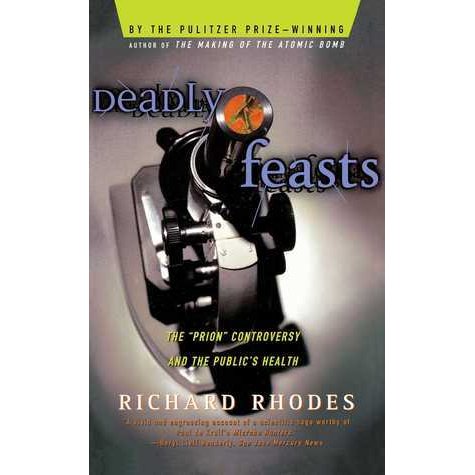 In this brilliant and gripping medical detective story. Richard Rhodes follows virus hunters on three continents as they track the emergence of a deadly new brain disease that first kills cannibals in New Guinea, then cattle and young people in Britain and France—and that has already been traced to food animals in the United States. In a new afterword for the paperback, Rhodes reports the latest US and worldwide developments of a burgeoning global threat.
In this brilliant and gripping medical detective story. Richard Rhodes follows virus hunters on three continents as they track the emergence of a deadly new brain disease that first kills cannibals in New Guinea, then cattle and young people in Britain and France—and that has already been traced to food animals in the United States. In a new afterword for the paperback, Rhodes reports the latest US and worldwide developments of a burgeoning global threat.
More about Deadly Feasts
by Richard Rhodes
Noah’s Garden
by Sara Stein
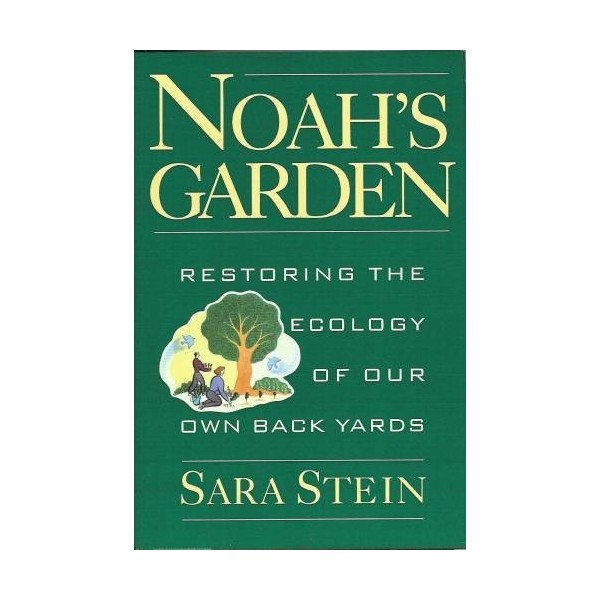 Published to rave reviews in 1993, Noah’s Garden shows us how our landscape style of neat yards and gardens has devastated suburban ecology, wiping out entire communities of plants and animals by stripping bare their habitats and destroying their food supplies. When Stein realized what her intensive efforts at making a traditional garden had done, she set out to “ungarden.” Her book interweaves an account of her efforts with an explanation of the ecology of gardens. Noah’s Garden has become the bible of the new environmental gardening movement, and the author is one of its most popular spokespersons.
Published to rave reviews in 1993, Noah’s Garden shows us how our landscape style of neat yards and gardens has devastated suburban ecology, wiping out entire communities of plants and animals by stripping bare their habitats and destroying their food supplies. When Stein realized what her intensive efforts at making a traditional garden had done, she set out to “ungarden.” Her book interweaves an account of her efforts with an explanation of the ecology of gardens. Noah’s Garden has become the bible of the new environmental gardening movement, and the author is one of its most popular spokespersons.
More about Noah’s Garden
Beak of the Finch
By Johnathan Weiner
The Beak of the Finch tells the story of two Princeton University scientists – evolutionary biologists – engaged in an extraordinary investigation. They are watching, and recording, evolution as it is occurring – now – among the very species of Galapagos finches that inspired Darwin’s early musings on the origin of species. They are studying the evolutionary process not through the cryptic medium of fossils but in real time, in the wild, in the flesh. The finches that Darwin took from Galapagos at the time of his voyage on the Beagle led to his first veiled hints about his revolutionary theory.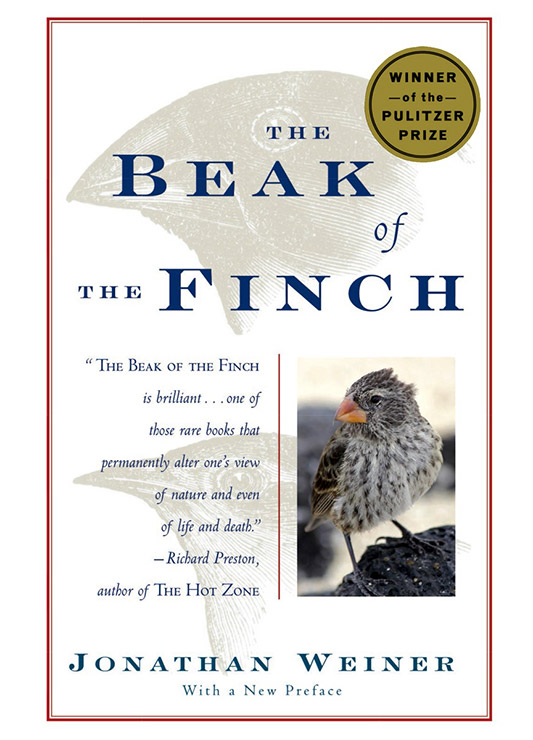
But Darwin himself never saw evolution as Peter and Rosemary Grant have been seeing it – in the act of happening. For more than twenty years they have been monitoring generation after generation of finches on the island of Daphne Major – measuring, weighing, observing, tracking, analyzing on computers their struggle for existence. We see the Grants at work on the island among the thousands of living, nesting, hatching, growing birds whose world and lives are the Grants’ primary laboratory. We explore the special circumstances that make the Galapagos archipelago a paradise for evolutionary research: an isolated population of birds that cannot easily fly away and mate with other populations, islands that are the tips of young volcanoes and thus still rapidly evolving as does the life that they support, a food supply changing radically in response to radical variations of climate – so that in a brief span of time the Grants can see the beak of the finch adapt. And we watch the Grants’ team observe evolution at a level that was totally inaccessible to Darwin: the molecular level, as the DNA in the blood samples taken from the birds reveals evolutionary change.
More about Beak of the Finch
Green Psychology
By Ralph Metzner
In Green Psychology Ralph Metzner explores the history of this global pathology and examines the ways that we can restore a healing relationship with nature. 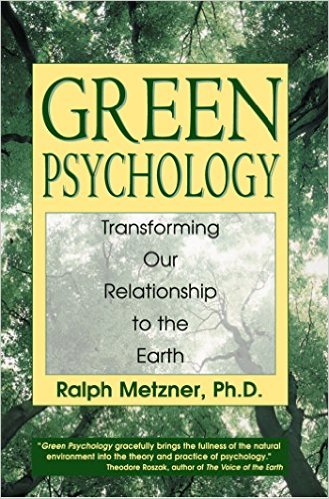 His search for role models takes him from shamanic ceremonies with the Lacandon Maya of Mexico to vision quests in the California desert, from the astonishing nature mysticism of Hildegard von Bingen to the Black Goddesses and Green Gods of our pagan ancestors.
His search for role models takes him from shamanic ceremonies with the Lacandon Maya of Mexico to vision quests in the California desert, from the astonishing nature mysticism of Hildegard von Bingen to the Black Goddesses and Green Gods of our pagan ancestors.
He examines the historical roots of the split between humans and nature, showing how first sky-god worshiping cultures, then monotheisms, and finally mechanistic science continued to isolate the human psyche from the life-giving Earth. His final chapters present a solution, showing that disciplines such as deep ecology and ecofeminism are creating a worldview in which the mind of humanity and the health of the Earth are harmoniously intertwined.
More about Green Psychology
Easy Compost
By Brooklyn Botanical Garden
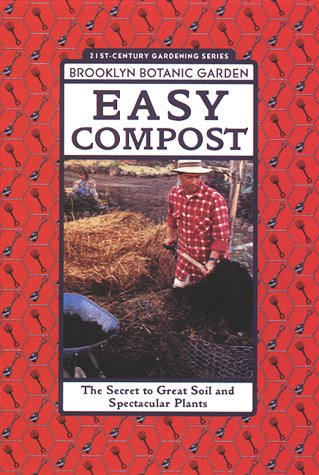 Easy Compost was first published in 1997, and this revised edition remains an essential guide to the science and art of composting. It explains how composting benefits your garden as well as the larger environment and describes the role of earthworms and other tiny creatures that turn your kitchen scraps and garden clippings into “black gold.” At the heart of the book are the basics of what you need to know to make good compost: which materials to include, where to locate your pile, what type of bin to use, troubleshooting tips, and instructions for composting indoors. You’ll also find brand–new chapters on compost tea; vermicomposting in schools; urban composting, including profiles of five innovative community composting sites in Brooklyn; and an expanded guide for building your own composter.
Easy Compost was first published in 1997, and this revised edition remains an essential guide to the science and art of composting. It explains how composting benefits your garden as well as the larger environment and describes the role of earthworms and other tiny creatures that turn your kitchen scraps and garden clippings into “black gold.” At the heart of the book are the basics of what you need to know to make good compost: which materials to include, where to locate your pile, what type of bin to use, troubleshooting tips, and instructions for composting indoors. You’ll also find brand–new chapters on compost tea; vermicomposting in schools; urban composting, including profiles of five innovative community composting sites in Brooklyn; and an expanded guide for building your own composter.
More about Easy Compost
Elves of Lily Hill Farm
By Penny Kelly
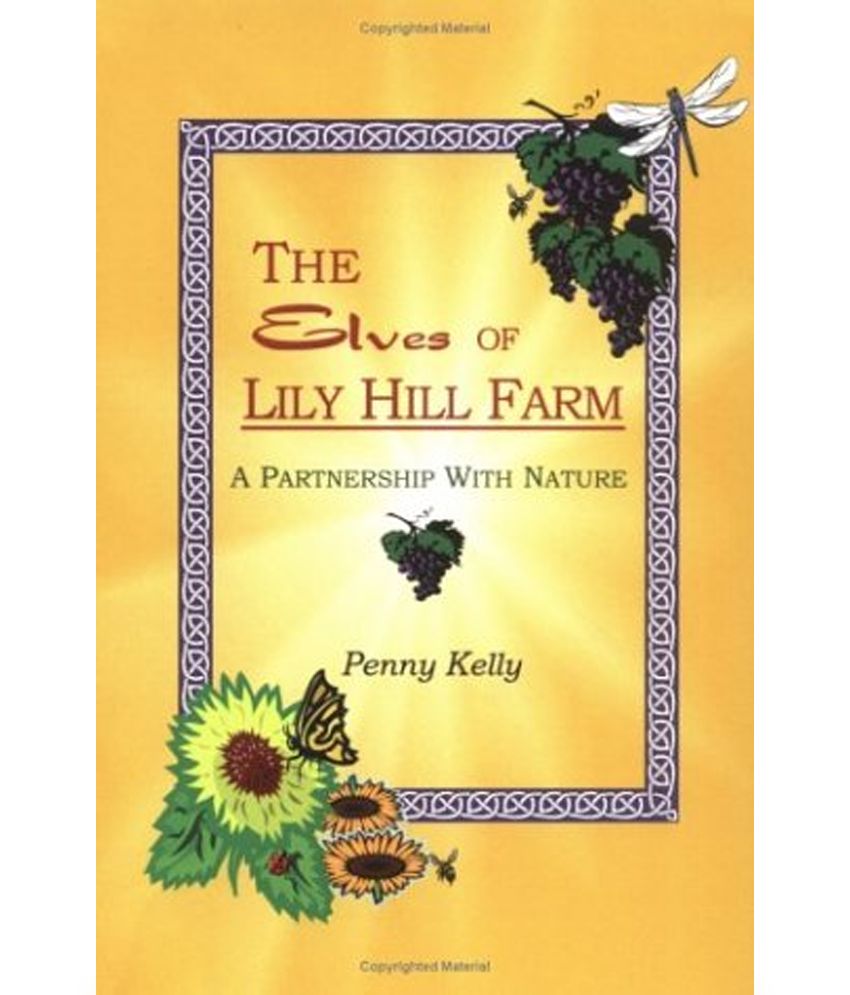 This incredible true story revolves around Penny Kelly (owner of Lily Hill Farm) and the “deal” she makes — with a group of elves — to produce one hundred tons of grapes from a mere thirteen acres of vineyards. The elves’ encouragement to find “the nature of balance rather than the balance in nature” becomes the force behind a re-alignment of intention, energy and physical action. The experience uncovers a gripping truth for us in today’s world.
This incredible true story revolves around Penny Kelly (owner of Lily Hill Farm) and the “deal” she makes — with a group of elves — to produce one hundred tons of grapes from a mere thirteen acres of vineyards. The elves’ encouragement to find “the nature of balance rather than the balance in nature” becomes the force behind a re-alignment of intention, energy and physical action. The experience uncovers a gripping truth for us in today’s world.
More about Elves of Lily Hill Farm
The Albrecht Papers
By William Albrecht PhD
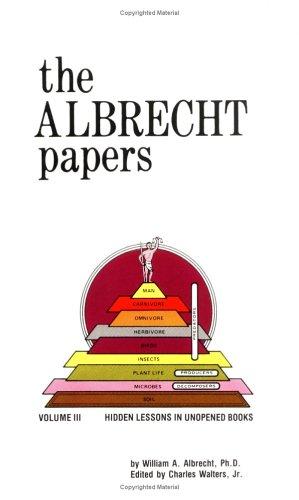 Professor William Albrecht was a premier soil scientist and was dismayed by the rapid chemicalization of farming that followed WWII. This book is a well-organized explanation of the relationship between soil fertility and animal and human health. He shows why animal health (and ultimately human health) is based in the fertility of the soil and what farmers can do to improve soil quality, solving livestock disease problems in the process.
Professor William Albrecht was a premier soil scientist and was dismayed by the rapid chemicalization of farming that followed WWII. This book is a well-organized explanation of the relationship between soil fertility and animal and human health. He shows why animal health (and ultimately human health) is based in the fertility of the soil and what farmers can do to improve soil quality, solving livestock disease problems in the process.
More about Elves of Albrecht Papers
Slim Spurling’s Universe
By Cal Garrison
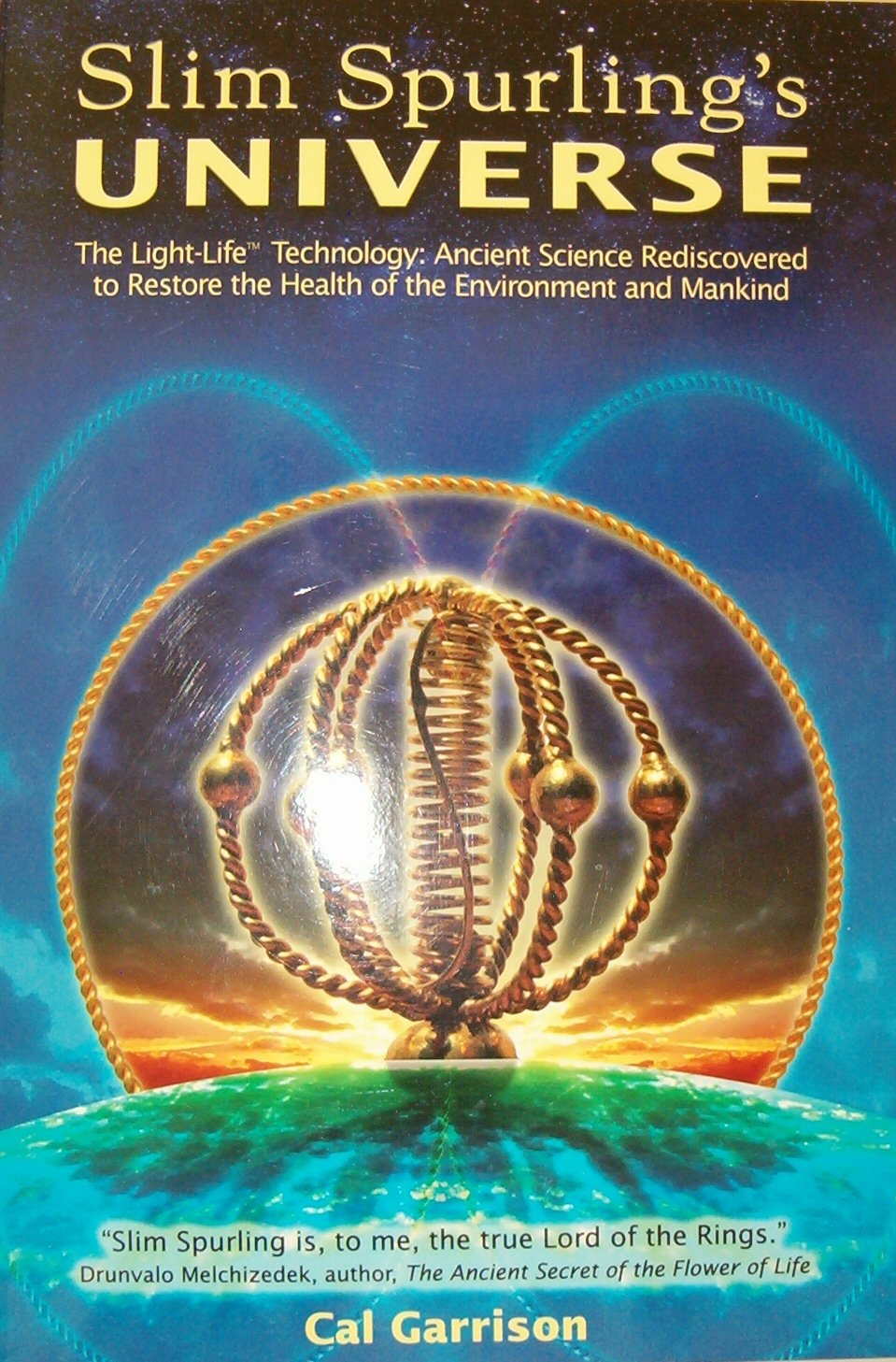 Slim Spurling’s Universe is the first written documentation of a lifetime of research that took the man far beyond the boundaries of known science. Scientists and laymen alike will be fascinated and inspired by what lies inside these pages. This book, which is full of knowledge and information that can be put to immediate use, will give readers a clear, concise picture of how we can take the problems of the world into our own hands and do something about them.
Slim Spurling’s Universe is the first written documentation of a lifetime of research that took the man far beyond the boundaries of known science. Scientists and laymen alike will be fascinated and inspired by what lies inside these pages. This book, which is full of knowledge and information that can be put to immediate use, will give readers a clear, concise picture of how we can take the problems of the world into our own hands and do something about them.
More about Slim Spurling’s Universe
Cradle to Cradle
By William McDonough
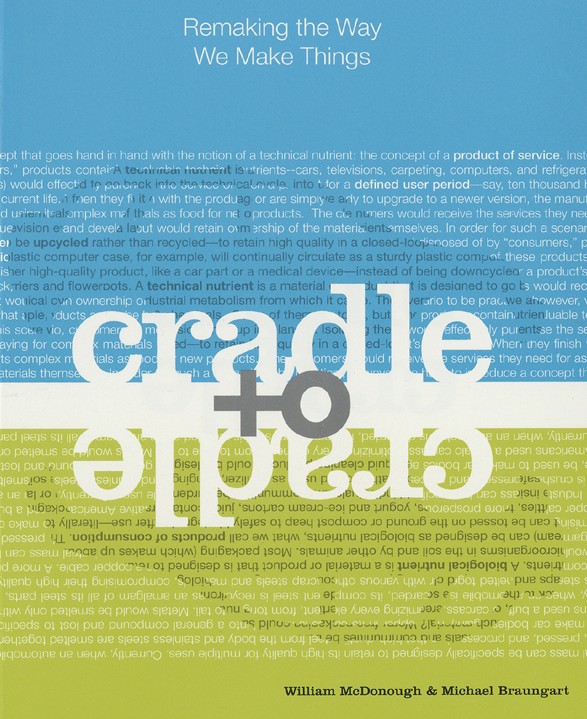 Cradle to Cradle: Remaking the Way We Make Things is a 2002 non-fiction book by German chemist Michael Braungart and U.S. architect William McDonough. It is a manifesto detailing how to achieve their Cradle to Cradle Design model. It calls for a radical change in industry: a switch from a cradle-to-grave pattern to a cradle-to-cradle pattern. It suggests that the “reduce reuse recycle” methods perpetuate this cradle-to-grave strategy, and that more changes need to be made The book discourages downcycling, but rather encourages the manufacture of products with the goal of upcycling in mind.
Cradle to Cradle: Remaking the Way We Make Things is a 2002 non-fiction book by German chemist Michael Braungart and U.S. architect William McDonough. It is a manifesto detailing how to achieve their Cradle to Cradle Design model. It calls for a radical change in industry: a switch from a cradle-to-grave pattern to a cradle-to-cradle pattern. It suggests that the “reduce reuse recycle” methods perpetuate this cradle-to-grave strategy, and that more changes need to be made The book discourages downcycling, but rather encourages the manufacture of products with the goal of upcycling in mind.
This vision of upcycling is based on a system of “lifecycle development” initiated by Braungart and colleagues at the Environmental Protection Encouragement Agency in the 1990s: after products have reached the end of their useful life, they become either “biological nutrients” or “technical nutrients”. Biological nutrients are materials that can re-enter the environment. Technical nutrients are materials that remain within closed-loop industrial cycles.
Read more about Cradle to Cradle
The Last Hours of Ancient Sunlight
By Thom Hartmann
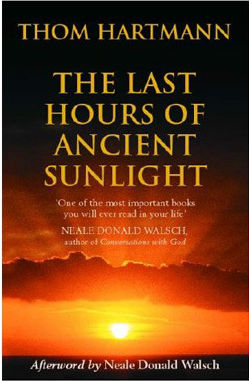 “The Last Hours of Ancient Sunlight” details in three parts the damage being done to our biosphere, the reasons why our culture would inevitably do such damage, and how we can fix the problem.
“The Last Hours of Ancient Sunlight” details in three parts the damage being done to our biosphere, the reasons why our culture would inevitably do such damage, and how we can fix the problem.
“Thom Hartmann here issues a wake-up call, loud and clear, that must literally be heard around the world — and the sooner the better, for us and especially for our children.” – Daniel Quinn, author of Ishmael “One of the most important books you will ever read.” – Neale Donald Walsch, author Conversations with God
More about The Last Hours of Ancient Sunlight
Messages From Water
By Masaru Emoto
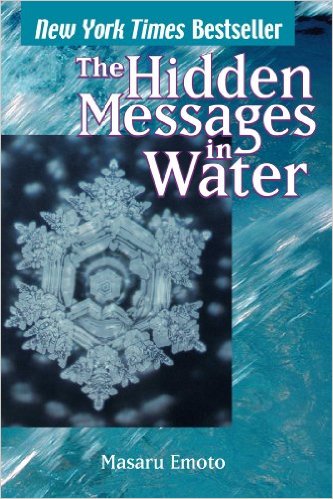 Dr. Emoto had long wondered if there were methods of expressing difference in the nature of water. He knew that water from a natural spring, for example, was better for you than tap water or stagnant water. When Dr. Emoto read in a children’s book that no two snowflakes have the same shape, he thought that the same thing must apply to frozen water crystals. Dr. Emoto wondered if he could develop a way to photograph frozen water crystals. Does water have messages for us? Can we develop ways to receive those messages from water?
Dr. Emoto had long wondered if there were methods of expressing difference in the nature of water. He knew that water from a natural spring, for example, was better for you than tap water or stagnant water. When Dr. Emoto read in a children’s book that no two snowflakes have the same shape, he thought that the same thing must apply to frozen water crystals. Dr. Emoto wondered if he could develop a way to photograph frozen water crystals. Does water have messages for us? Can we develop ways to receive those messages from water?
So after much trial and error, Dr. Emoto developed a process in which he would freeze drops of water and take photographs of individual water crystals that formed. He found that his theory was correct: like snowflakes, every water crystal is unique. But he learned much more than that. Dr. Emoto found that you could tell much about the nature of the water by photographing it in this way, and more importantly, that, as human beings, we can change the nature of water in many ways. Water truly does have powerful messages for us.
Read more about Messages from Water
And within these works of leterature I hope within you find some interesting reading to enjoy over the dormant months of the growing seasons. To peruse a diverse selection of organic reading and information please refer to our Organic Library pages.
view the entire list of SUGGESTED READING BY MICHAEL KOLENUT
Lincoln Landscaping “The Natural Choice”
Mike Kolenut President & CEO
Lincolnlandscape@gmail.com
www.lincolnlandscapinginc.com
(201) 848-9699

